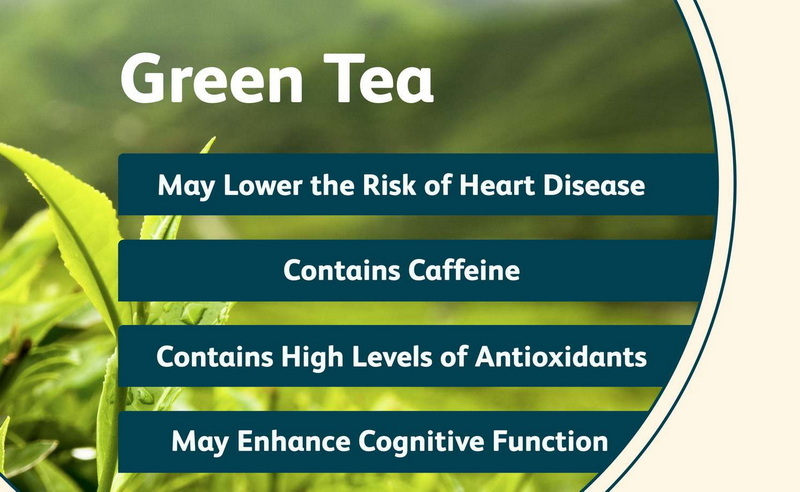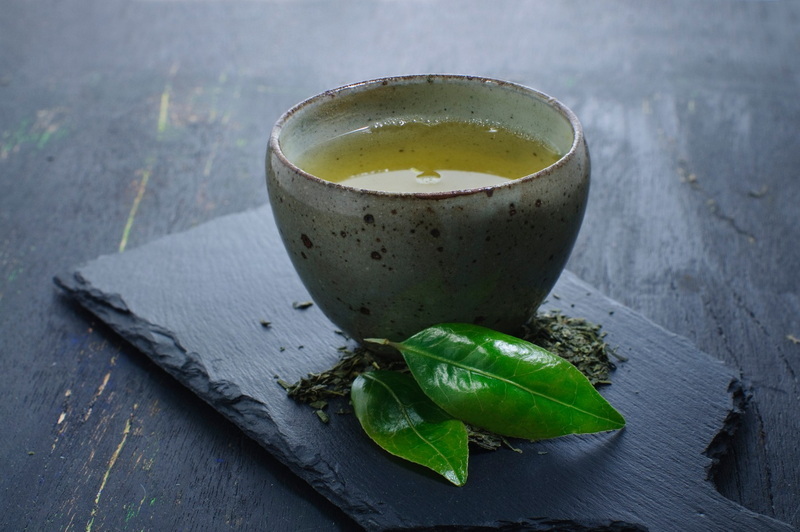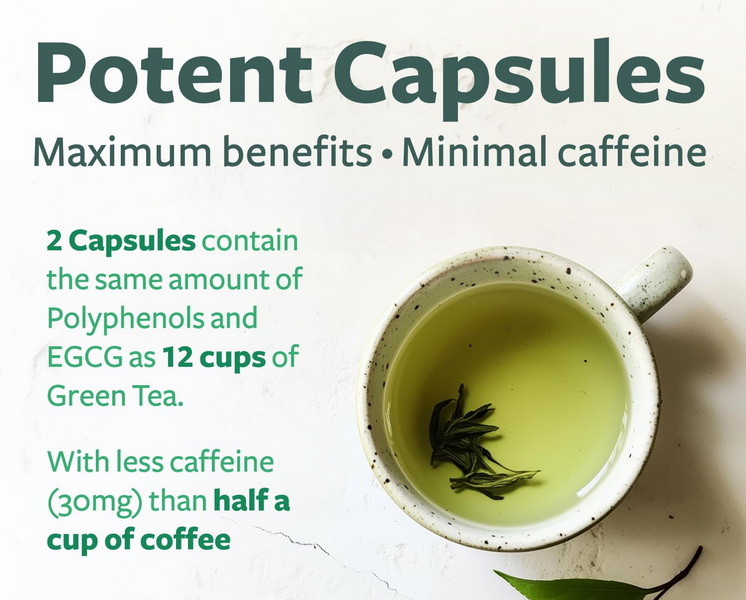Content Menu
● Understanding Green Tea Extract
● Caffeine Content in Green Tea Extract
● Health Implications of Caffeine in Green Tea Extract
>> Benefits
>> Risks
● How Much Caffeine is Too Much?
● Additional Health Benefits of Green Tea Extract
>> Weight Management
>> Cardiovascular Health
>> Skin Health
>> Brain Health
● Further Expansion Ideas
● Conclusion
● FAQ
>> 1. Is there caffeine in all green tea extracts?
>> 2. How much caffeine is typically found in a cup of brewed green tea?
>> 3. Can I take green tea extract if I'm sensitive to caffeine?
>> 4. What are the potential side effects of consuming too much green tea extract?
>> 5. How should I choose a green tea extract supplement?
● Citations:
Green tea has been a staple in many cultures for centuries, celebrated not only for its refreshing taste but also for its numerous health benefits. Among these benefits, the presence of caffeine in green tea extracts often raises questions. This article will delve into whether green tea extracts contain caffeine, the variations in caffeine content across different products, and the implications of caffeine consumption through these extracts.

Understanding Green Tea Extract
Green tea extract is derived from the leaves of the *Camellia sinensis* plant, which are processed to retain high levels of antioxidants known as catechins. The most prominent catechin is epigallocatechin gallate (EGCG), which is linked to various health benefits such as improved metabolism, enhanced fat oxidation, and reduced inflammation. However, green tea extracts are also known to contain caffeine, a natural stimulant that can affect energy levels and alertness.
Caffeine Content in Green Tea Extract
The caffeine content in green tea extract can vary significantly based on several factors:
- Brand Variability: Different brands formulate their green tea extracts with varying concentrations of caffeine. For instance:
- NOW Foods: 32 mg of caffeine per 400 mg of extract.
- Nature's Truth: Up to 200 mg of caffeine per serving.
- Life Extension: Contains about 25 mg of caffeine per serving.
- Formulation Differences: Some products may be specifically designed to be decaffeinated or have lower caffeine content, while others might enhance their stimulant effects by adding more caffeine.
- Serving Size: The amount of extract consumed can also influence the total caffeine intake. A typical serving size can range from 250 mg to over 1000 mg of green tea extract, leading to substantial differences in caffeine intake.
Health Implications of Caffeine in Green Tea Extract
Benefits
1. Increased Alertness: Caffeine is well-known for its ability to enhance mental alertness and reduce fatigue. This effect can be beneficial for individuals looking for a natural boost during workouts or long work hours.
2. Enhanced Metabolism: Studies suggest that both caffeine and catechins can work synergistically to promote thermogenesis and fat oxidation, potentially aiding in weight management efforts.
3. Improved Exercise Performance: Research indicates that caffeine can improve physical performance by increasing endurance and reducing perceived exertion during exercise.
4. Antioxidant Properties: The antioxidants in green tea extract, particularly EGCG, have been shown to protect brain cells from oxidative stress and may help reduce brain damage that could lead to mental decline and brain diseases like Parkinson's and Alzheimer's[1][6].
Risks
1. Side Effects: High doses of caffeine can lead to side effects such as jitteriness, insomnia, increased heart rate, and anxiety. Individuals sensitive to stimulants should monitor their intake carefully.
2. Liver Health Concerns: There are reports linking high doses of green tea extract supplements with liver damage, particularly when taken in excessive amounts. It's crucial to adhere to recommended dosages[1][10].
3. Interactions with Medications: Caffeine can interact with certain medications, affecting their efficacy or increasing side effects[19][21].
How Much Caffeine is Too Much?
Health experts generally agree that moderate caffeine consumption—up to 400 mg per day—is safe for most adults. However, those who consume other sources of caffeine (like coffee or energy drinks) should account for their total daily intake to avoid exceeding this limit.

Additional Health Benefits of Green Tea Extract
Weight Management
Research has shown that green tea extract may support weight loss efforts due to its ability to enhance metabolic rate and fat oxidation[1][11]. A study involving women with central obesity found significant weight loss after taking high doses of green tea extract over 12 weeks[9].
Cardiovascular Health
Green tea extract has been associated with improvements in cardiovascular health by reducing levels of LDL cholesterol and triglycerides while increasing HDL cholesterol[10][15]. Regular consumption may lower blood pressure and improve overall heart health[11][19].
Skin Health
Green tea extract is rich in antioxidants that can benefit skin health by reducing signs of aging and improving conditions such as acne[6][22]. Studies have shown that topical application of green tea can help treat various skin concerns due to its anti-inflammatory properties[6][22].
Brain Health
The neuroprotective properties of green tea extract have garnered attention for their potential role in preventing cognitive decline associated with aging[7][27]. The antioxidants present may help protect brain cells from oxidative stress and improve memory function[1][6].
Further Expansion Ideas
- Discuss various types of green tea (e.g., matcha vs regular) and their respective benefits.
- Include more detailed studies on specific health outcomes related to regular consumption.
- Provide user testimonials or case studies highlighting individual experiences with green tea extracts.
- Explore recipes that incorporate green tea extracts into smoothies or baked goods.
- Discuss cultural perspectives on the consumption of green tea globally.
Conclusion
Green tea extracts do contain caffeine, but the amount varies widely among different brands and formulations. While moderate consumption can offer several health benefits, including enhanced alertness and metabolism support, excessive intake may lead to adverse effects. Therefore, it's essential for consumers to read labels carefully and consider their overall dietary caffeine intake.

FAQ
1. Is there caffeine in all green tea extracts?
Not all green tea extracts contain caffeine; some are specifically formulated to be decaffeinated or have low levels of caffeine.
2. How much caffeine is typically found in a cup of brewed green tea?
A standard cup of brewed green tea contains approximately 30-50 mg of caffeine.
3. Can I take green tea extract if I'm sensitive to caffeine?
If you are sensitive to caffeine, it is advisable to choose decaffeinated options or consult a healthcare professional before using green tea extracts.
4. What are the potential side effects of consuming too much green tea extract?
Excessive consumption may lead to side effects such as insomnia, anxiety, increased heart rate, and liver issues.
5. How should I choose a green tea extract supplement?
Look for reputable brands that provide clear labeling on the amount of caffeine and other active ingredients per serving.
Citations:
[1] https://www.healthline.com/nutrition/10-benefits-of-green-tea-extract
[2] https://reviews.webmd.com/vitamins-supplements/ingredientreview-960-green-tea
[3] https://pubmed.ncbi.nlm.nih.gov/38031409/
[4] https://www.news-medical.net/news/20240415/Roasted-green-tea-boosts-mental-task-performance-study-finds.aspx
[5] https://www.scielo.br/j/cta/a/8Y9c3pBkGThNcY4PvjbzDbM/
[6] https://www.healthline.com/health/benefits-of-green-tea-for-skin
[7] https://pmc.ncbi.nlm.nih.gov/articles/PMC6412948/
[8] https://www.nature.com/articles/s41598-024-59383-y
[9] https://pubmed.ncbi.nlm.nih.gov/26093535/
[10] https://www.frontiersin.org/journals/nutrition/articles/10.3389/fnut.2022.1084455/full
[11] https://www.medicalnewstoday.com/articles/269538
[12] https://www.reddit.com/r/Supplements/comments/4zazc7/green_tea_extract_experiences_thoughts/
[13] https://ajcn.nutrition.org/article/S0002-9165(22)04202-2/fulltext
[14] https://hsph.harvard.edu/news/green-tea-healthy-habit/
[15] https://health.clevelandclinic.org/green-tea-extract-a-better-way-to-boost-energy-or-not
[16] https://www.webmd.com/vitamins/ai/ingredientmono-960/green-tea
[17] https://www.livestrong.com/article/186702-how-much-caffeine-is-in-green-tea-extract/
[18] https://pubmed.ncbi.nlm.nih.gov/16506807/
[19] https://www.nccih.nih.gov/health/green-tea
[20] https://hammernutrition.com/blogs/endurance-news-weekly/green-tea-extract-in-fully-charged
[21] https://www.mountsinai.org/health-library/herb/green-tea
[22] https://www.healthline.com/nutrition/top-10-evidence-based-health-benefits-of-green-tea
[23] https://www.researchgate.net/publication/262473749_Quantification_of_catechins_and_caffeine_from_green_tea_Camellia_sinensis_infusions_extract_and_ready-to-drink_beverages
[24] https://ajcn.nutrition.org/article/S0002-9165(22)04202-2/pdf
[25] https://www.reddit.com/r/Supplements/comments/ufn8ub/is_this_green_tea_extract_safe_to_take_brand_is/
[26] https://www.psu.edu/news/research/story/research-suggests-green-tea-exercise-boost-weight-loss-health
[27] https://pmc.ncbi.nlm.nih.gov/articles/PMC6412948/
[28] https://pubmed.ncbi.nlm.nih.gov/10584049/






























